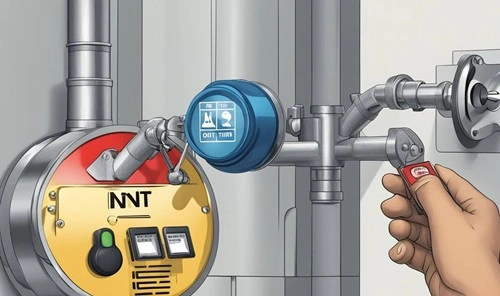Yes, in most cases, it is illegal to turn your water back on if it was shut off by a utility provider or a government agency for non-payment, code violations, or other regulatory reasons. Unauthorized reconnection can lead to fines, penalties, or even criminal charges, depending on state and local laws.
Why Is It Illegal to Turn Your Water Back On?
Water services are regulated by local utilities, municipalities, or private companies. When water is disconnected due to non-payment or legal violations, reactivating it without authorization violates these regulations and may result in serious consequences.
1. Unauthorized Access
- Turning water back on without permission is considered theft of services.
- Water providers require proper billing and payments for continued service.
2. Public Health and Safety
- Water shut-offs may occur for reasons such as contamination, pipeline repairs, or property code violations. Unauthorized reconnection could pose risks to public health or safety.
3. Breach of Contract
- Customers agree to terms of service with utility providers. Unauthorized reconnection breaches these terms, which can lead to legal action.
Legal Consequences of Reconnecting Water Without Authorization
1. Fines and Penalties
- Unauthorized reconnection can result in fines ranging from $50 to several thousand dollars, depending on local regulations and the severity of the violation.
2. Criminal Charges
- In some jurisdictions, turning water back on without approval can result in misdemeanor or felony charges for theft of services or tampering with public utilities.
3. Additional Fees
- Utility companies may impose fees for unauthorized reconnection, meter tampering, or damage caused during the reconnection process.
4. Service Termination
Repeated violations can lead to permanent disconnection of water services or legal actions to recover losses.
Exceptions and Legal Alternatives
1. Emergency Situations
- In rare cases, turning water back on might not result in penalties if there’s a proven emergency, such as a health crisis or fire risk. However, this should always be reported to the utility company immediately after the reconnection.
2. Negotiating with Utilities
- Most water providers allow customers to arrange payment plans or settle disputes before resorting to disconnection. Reaching out to the provider is always the best legal option.
3. Community Assistance Programs
- Many municipalities offer programs to help low-income households maintain water services. These can include payment assistance or discounts.
Steps to Legally Restore Water Service
1. Contact the Utility Provider
Speak with your water company to understand why service was disconnected and what steps are required to restore it.
2. Resolve Outstanding Issues
Pay outstanding bills, address code violations, or meet any other requirements specified by the utility provider.
3. Follow Proper Procedures
Allow authorized personnel to turn the water back on to avoid legal consequences or safety risks.
State-Specific Rules on Unauthorized Water Reconnection
1. California
- Under California law, unauthorized reconnection of water services can result in fines, legal action, and additional charges. California utilities often provide low-income assistance to prevent disconnections.
2. Texas
In Texas, tampering with water services is a punishable offense, with fines and possible jail time for repeat offenders.
Florida
Florida utilities treat unauthorized reconnections as theft, with penalties varying by county.
Common FAQs
Q1. Can I turn my water back on if I’ve paid my bill?
Ans: No, only authorized personnel from the utility company can reconnect water services after a payment is made. Contact the provider to schedule reconnection.
Q2. What happens if I’m caught turning my water back on?
Ans: You may face fines, additional fees, or criminal charges for tampering with public utilities.
Q3. Can landlords turn water off to evict tenants?
Ans: No, this is illegal in most states. Tenants can report such actions to local housing authorities or take legal action.
Q4. Is it legal to turn water back on for emergency use?
Ans: In emergencies, turning water back on may be justified, but the incident should be reported to the utility provider immediately to avoid penalties.
Q5. Are there programs to help pay water bills?
Ans: Yes, many utility providers offer payment assistance programs for low-income households, as well as local government aid options.
Conclusion
While it may be tempting to restore water service on your own, doing so without authorization is illegal in most cases and can lead to fines, fees, or even criminal charges. The safest and most responsible approach is to work with your utility provider to resolve the underlying issue and ensure proper restoration of service.


